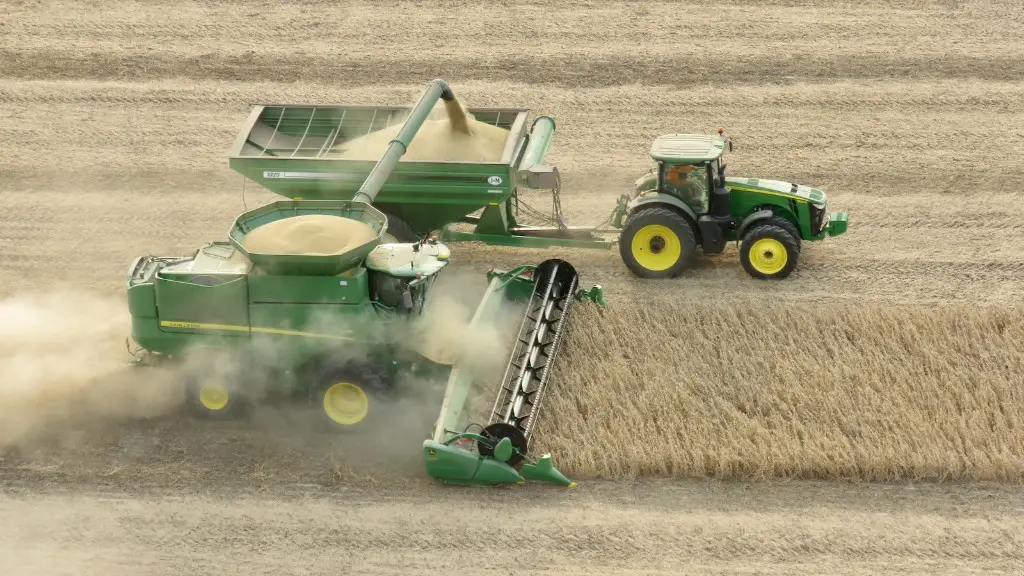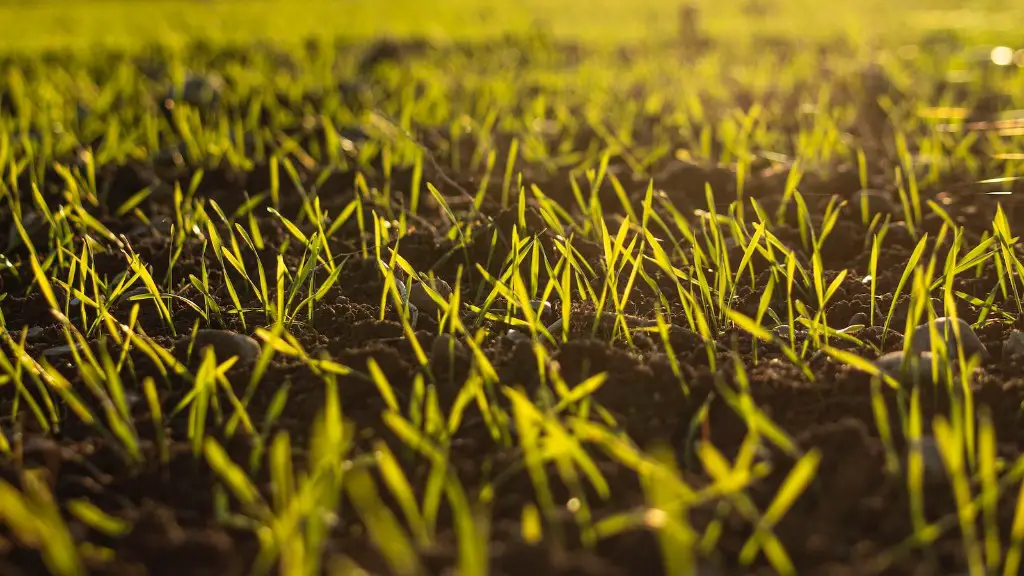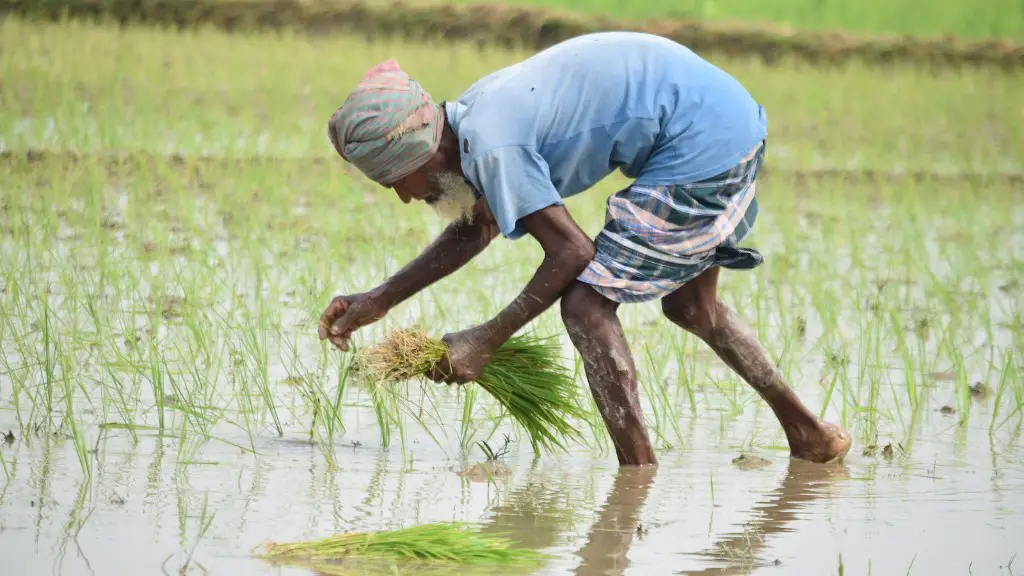Modern governments have implemented several measures to improve the agricultural sector and have been successful in bringing in effective development in the sector. Contrarily, farmers are the primary beneficiaries of the development in this sector, which helps them to have a better living standard. Government initiatives such as subsidies and loans, high-yielding varieties of seeds, improved irrigation facilities, and protection to farmers have been instrumental in enabling improved agricultural production.
Subsidies and loans offered to the agricultural sector enable farmers to purchase the latest equipment for cultivation and to purchase seeds at a low cost. The government’s agricultural incentives enable farmers to access credit from financial institutions at lower interest rates which otherwise would be out of reach to them.
Another way that the government is supporting farmers is through the provision of high-yielding varieties of seeds that allow for optimum production levels. With such seeds, farmers can not only ensure a good crop yield, but also reduce their costs significantly. Furthermore, such seeds also help mitigate risks of pest control, as well as diseases.
In addition, governments are also working to improve the irrigation facilities available to the farmers. With improved irrigation methods, farmers can ensure optimal usage of water resources and also have a more efficient system of crop cultivation. This is especially beneficial to farmers who are in drought-affected regions, as they can implement more efficient methods of crop cultivation with reduced water consumption.
Finally, the government also provides farmers with protection from exploitation by larger corporations. This can be done in several ways, such as setting up cooperatives and ensuring minimum support prices for crops and produce. Such protection ensures that farmers are not taken advantage of by other economic entities and can reap the benefits of their hard work.
High-Yielding Seeds
High-yielding varieties of seeds have been instrumental in improving crop yield, reducing farmers’ costs and helping mitigate the risk of pest and disease infestations. The success behind such seeds lies in their enhanced genetics, growing capacity and resistance to pest control, as well as diseases. Government programs are also instrumental in providing farmers with access to this technology, as well as supporting research and development of improved varieties of seed.
The government also provides farmers with subsidies and grants to purchase these seeds and invest in the latest farming technologies. This is done to encourage farmers to use high-yielding varieties of seed and increase their crop yield and efficiency. Furthermore, such incentives help the farmers reduce their costs significantly and use the resources effectively.
Moreover, the government is also promoting the use of digital technologies in the agricultural sector. Such digital technologies enable farmers to track, monitor and efficiently manage their crops and farm activities, including soil sampling, irrigation scheduling and fertilization. This helps farmers to produce a higher quality of crop, increase efficiency and reduce their costs, as well as mitigate the risk of pest and disease infestations.
Finally, the government has also partnered with private sector organizations to promote the use of high-yielding varieties of seed among farmers. Such partnerships are meant to enhance the development of improved varieties of seeds and to increase access to this technology among the local farmers. By doing so, the government is helping the farmers to maximize their crop yield and become more self-sufficient.
Improved Irrigation Facilities
The government is also focused on improving the irrigation facilities available to farmers in order to ensure optimal usage of water resources and improve production efficiency. This is especially beneficial for farmers in drought-affected areas, as they can now implement more efficient methods of crop cultivation with reduced water consumption. Modern irrigation systems allow for increased precision and accuracy in water management and can be used for a variety of purposes.
The government is also providing funds for the development and implementation of improved irrigation systems. This is done to encourage farmers to use the latest technology to improve their production levels and save water. Moreover, the government has also partnered with the private sector to develop more efficient and advanced irrigation systems, which can help to maximize the productivity in the agricultural sector.
Moreover, the government is also providing technical assistance to farmers on the use of advanced irrigation techniques. This helps farmers to understand the latest developments and use them effectively to improve their crop production. Such technical assistance is beneficial for farmers who have limited experience and resources, as they can now employ the latest methods of irrigation and maximize their output.
Furthermore, the government is also offering subsidies and grants to farmers to help them acquire irrigation equipment. This is meant to reduce the costs for the farmers and ensure that they can access the latest technology for their farms. By doing so, the government is helping the farmers to reduce their water consumption and maximize their crop production.
Finally, the government is also supporting research and development of improved irrigation systems, which can be used to satisfy the needs of each region. Such research is beneficial for creating systems that can cope with local hazards, such as floods and droughts, and provide farmers with the necessary resources for their operations.
Protection for Farmers
Protection for farmers is essential, as it helps them protect their produce from exploitation by larger companies. The government is providing farmers with several protective measures, such as setting up cooperatives, providing minimum support prices and enforcing legal protection. This helps farmers to better benefit from their hard work, while also enabling them to produce quality produce for their respective markets.
The government is also setting up cooperatives that help farmers to directly bring their produce to the market without any intermediaries. Such cooperatives make sure that farmers receive a fair share from their produce and are able to keep their profits in the local economy. This helps to empower the farmer and create a more equal footing with the large corporate entities.
Furthermore, the government is also setting minimum support prices for different crops and produce. This is done to ensure that the farmers are not taken advantage of by other companies and that they can receive a fair compensation for their work. Such a measure helps the farmers to remain competitive and also ensures that they are not exploited by the external market forces.
The government is also providing legal protection to the farmers in order to protect them from unfair contracts and exploitative practices. This helps to ensure that farmers are not taken advantage of by the large corporations and can benefit from their efforts without any external interventions.
Finally, the government is also providing technical assistance to the farmers in order to improve their agricultural efficiency. This includes providing training on the latest methods of farming and increasing their knowledge about the agricultural sector. By providing such assistance, the government is helping farmers to improve their production levels, reduce their costs and increase their efficiency.




